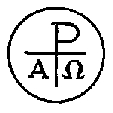
FAIR is a non-profit organization dedicated to providing well-documented answers to criticisms of the doctrine, practice, and history of The Church of Jesus Christ of Latter-day Saints.
| Answers portal |
| God |

|
|
This page is based on an answer to a question submitted to the FAIR web site, or a frequently asked question.
Some of my non-LDS Christian friends have told me that because Mormons don't believe the Nicene Creed, we are polytheists. Is this an accurate characterization of LDS belief?
Almost invariably when someone claims that Mormons are polytheists, they are not seeking a clear explanation of Mormon thought on the nature of God, but are simply using a word with negative connotations in our religious culture as a club to intimdate or confuse others.
There really is not a single word that adequately captures LDS thought on the nature of God. The key technical terminology includes the following:
Usually the very same people who are pressing the case that Mormons are polytheists are some stripe of Evangelical Christians who claim to be monotheists. But Trinitarians are not Monotheists by definition (just ask a Jew or Muslim).
The fact that the LDS do not believe that the Father, Son and Holy Ghost are one in substance, and the fact that the Saints believe in deification/theosis (that humans may eventually become deified and become partakers in the divine nature), could be used to paint Mormons as in some sense polytheists.
But when we examine the technical terminology above, it becomes clear that a key point of demarcation is worship v. acknowledgement of existence. If members of the Church worshiped an extensive pantheon like the Greeks or Romans, then the label would be appropriate. But in the context of doctrinal differences over the relationship among the Father, Son and Holy Ghost or the doctrine of deification (which is a profoundly Christian doctrine and not just a Mormon one), use of the word "polytheistic" as a pejorative is both inaccurate and inappropriate.
The fact is that instead of using a single-word label, one must actually articulate the belief (using actual sentences or paragraphs), since the single-word label that will adequately describe the full breadth of LDS thought on the nature of God has yet to be coined.
None
William O. Nelson, “Is the LDS View of God Consistent with the Bible?” Ensign, July 1987, ---.
|
Template:Godwiki Template:JesusWiki

FAIR is a non-profit organization dedicated to providing well-documented answers to criticisms of the doctrine, practice, and history of The Church of Jesus Christ of Latter-day Saints.
We are a volunteer organization. We invite you to give back.
Donate Now